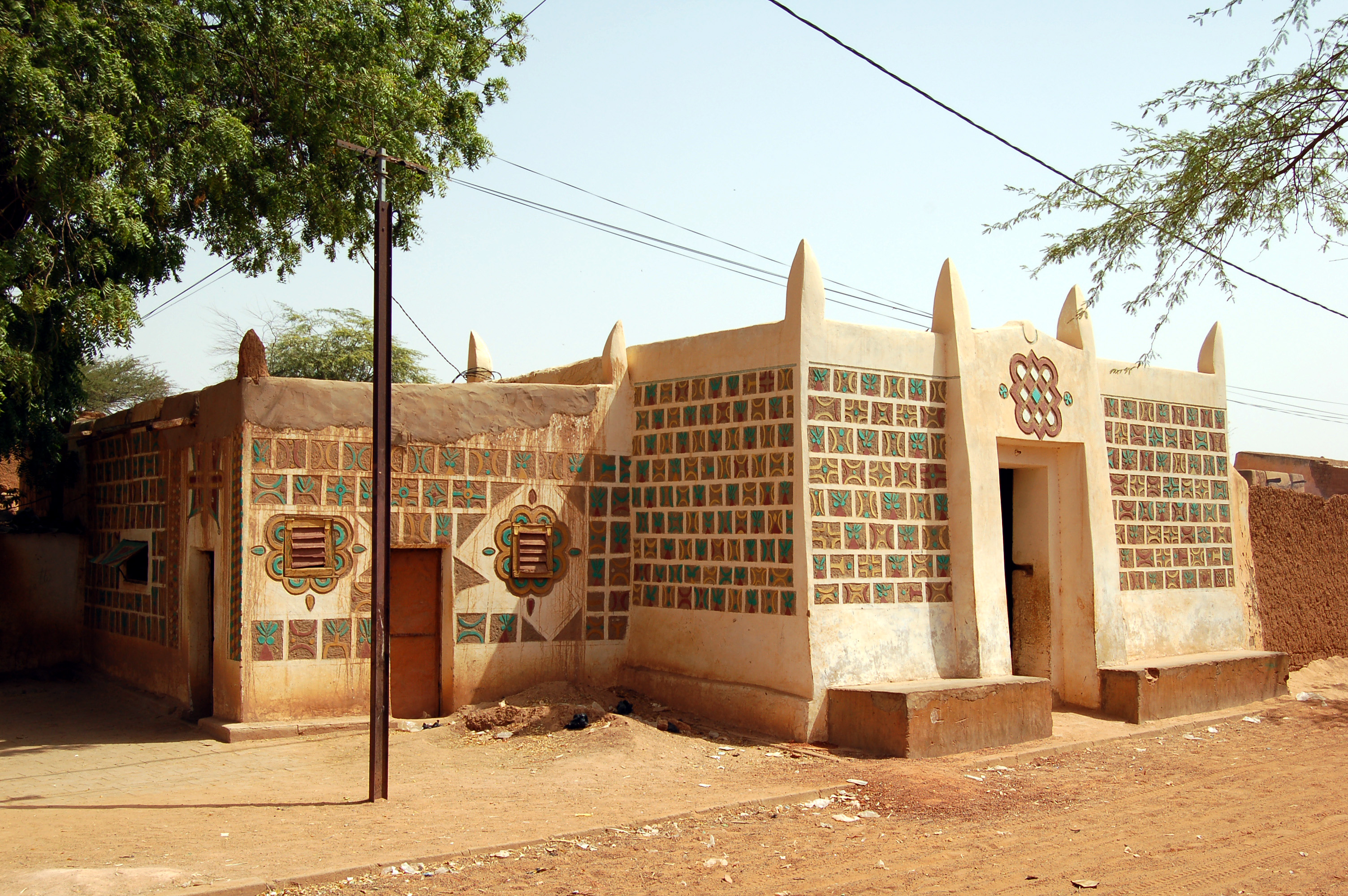As at: 10/03/2025
Historical building in Zinder, Niger
Copyright© Roland, via wikimedia, CC BY-SA 2.0
Niger
Nevertheless, Niger is a country with many young people because of its very high birth rate (fertility rate of 6.6). Nearly half (49 per cent) of the people are under the age of 15. The literacy rate is only between 21 and 33 per cent due to a lack of schools, but also because children, especially girls, are unable to attend them. There is also the threat posed by terrorism and gang-related crime, which often spreads from neighbouring countries (Nigeria, Burkina Faso, Mali and Libya) to Niger. At the same time, Niger is particularly hard-hit by climate change. Droughts alternate with large-scale floods (most recently in 2024 with 1.3 million people affected). These droughts destroy valuable farmland and deprive the population of its livelihood.
The unstable situation was one of the reasons why, on 26 July 2023, parts of the armed forces perpetrated a coup against the elected President Mohamed Bazoum. Despite the announced return to democracy, progress on this front is still unsatisfactory one and a half years later. Nevertheless, Germany has a strong interest in providing continued support to Niger to prevent the social and economic situation from deteriorating any further. Similarly to the approach taken with Mali, Burkina Faso and Chad, livelihoods must be safeguarded and the causes of the crisis mitigated.
For German development cooperation, this means that it will stay engaged in Niger while adapting its interventions to the fragile political environment. For the time being, it will not return to the regular cooperation it had with the government of Niger before the coup. Instead, interventions will be implemented without involving the government: as in Mali and Burkina Faso, the central government of Niger continues to receive no funding. Instead, the funds go to subordinate authorities, municipalities, civil society organisations and international organisations that then use the funding for concrete projects. This is a way to ensure that the military government does not benefit from development cooperation funding.
In addition, German development cooperation focuses on efforts that have a direct impact on people’s livelihoods, for instance by creating new jobs in agriculture, improving maternal and child health, developing climate-smart farming methods and improving water supply.
SDG trends for Niger
- On track or maintaining SDG achievement
- Moderately improving
- Stagnating
- Decreasing
- Trend information unavailable

















